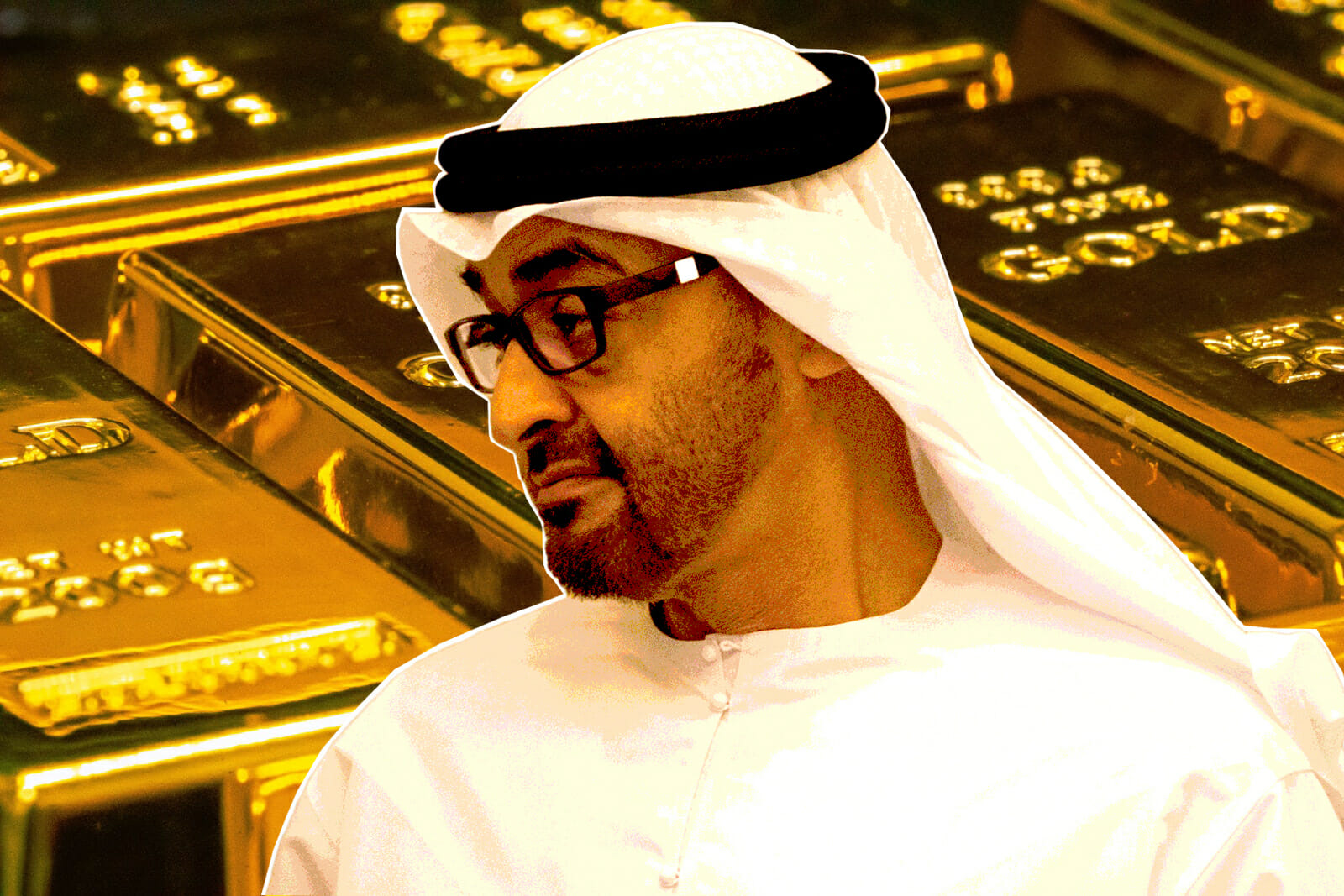
Cleaning the Emirates’ Gold: A Matter of Foreign and Financial Policy
While the Middle East is a relatively minor player in the extraction of gold, cash-rich Gulf states ensure that the region remains an essential feature of a multibillion-dollar industry. None more so than the United Arab Emirates, with Dubai among the world’s leading buyers and sellers of gold products. Conversely, a series of media investigations also point to the country’s hand in more questionable transactions of this precious metal.
In the wake of critical reports by the Financial Action Task Force, the UAE has vowed to get its financial house in order, particularly when it comes to money laundering. From there, the country has responded to criticisms regarding the opacity of its bullion trade by promising more robust mechanisms to address challenges posed by financial crime. A cleaner and more ethical gold sector should also be factored into the UAE’s foreign policies.
The African Connection
According to research conducted by Reuters, the UAE received $15.1 billion worth of gold from 46 African countries in 2016, up from $1.3 billion in 2006. Of those, 25 did not provide the United Nations’ Comtrade with data on their gold exports, despite the UAE recording over $7 billion of trade between them. Reuters also reports Africa’s established mining industries did not send their gold to the UAE, thereby implying that most imports come from informal activities.
A mixture of loose government practices and unfavourable pricing regimes fuel Africa’s informal mining sector. In an effort to maximise profits, unregulated producers and corrupt officials often work with middlemen to transport gold across porous borders and in hand luggage. Beyond geographical location, limited regulation has enabled the United Arab Emirates to legally import informally-mined gold tax-free. This points to vast amounts of gold leaving Africa without any taxes paid to countries of origin.
Africa’s informal mining sector has also attracted interest from actors firmly in the crosshairs of the UAE’s foreign policy priorities. A report commissioned by Burkina Faso’s government estimates that jihadists associated with Al-Qaeda and Islamic State have made $140 million from attacks on the country’s goldmines since 2016. Elsewhere, analysts warn of an emerging nexus between banditry and gold mining in Nigeria’s restive Zamara state, with some miners thought to be complicit with and victimised by armed gangs.
Moreover, the UAE’s appetite for gold emanating from or transiting via Africa potentially risks the diplomatic ire of some of its Western allies. In 2020, cash-strapped Venezuela allegedly sent gold to Mali via Russian aircraft in exchange for hard currency. After refining, the end product was primarily sold to the UAE for an estimated $1 billion. In doing so, the Maduro government effectively bypassed U.S.-sanctions on Venezuelan gold. The transactions further cast the UAE’s laissez-faire approach to imports in a controversial light.
Paying it Back
In an effort to improve the transparency of its gold sector, the UAE has joined other trading hubs in declaring support for the London Bullion Market Authority’s (LBMA) initiative to improve regulations concerning money laundering and responsible sourcing. This has been accompanied by domestic policies to bring governance of the country’s gold market into line with international standards. Given recent developments at home and around the neighbourhood, there’s also scope to do more further afield.
Whether reducing its footprint in Libya and Yemen, normalising ties with Israel, or repairing fractured Gulf Cooperation Council (GCC) relations, the UAE is recalibrating its foreign policy. While the arrival of the Biden administration added fresh impetus, high-profile changes at the Ministry of Foreign Affairs and the country’s candidacy for the UN Security Council are among other factors shaping its evolving international outlook. As the latter requires two-thirds approval within the General Assembly, the UAE might look to Africa for much-needed support.
With voting scheduled for June, time is not necessarily on the UAE’s side for building widespread African momentum behind its candidacy. Demonstrating the country’s place at the forefront of global efforts to clean up the bullion trade might nevertheless help tip the balance. For example, the UAE may consider offering moral and material support for state-led initiatives to prevent smuggling and encourage fairer pricing. These include Sudan’s five-point plan for purchasing crude gold at international market prices.
Just as the UAE is demystifying its gold industry it should encourage African countries to follow suit. Criticisms leveled at Zimbabwe’s gold sector include the absence of clear government policies and an unfavourable payment system. According to small-scale miners, this encourages smuggling into South Africa and potentially Dubai. Put simply, receiving smuggled gold is at odds with the UAE’s drive for the highest market standards. If so, then Abu Dhabi has more than a passing interest in endorsing African-led efforts to clean up the industry.
Beyond Little Sparta
Thanks to vast government expenditure and cooperation with allies, the UAE is regarded as having the best military in the Arab world. The same is not always said of its diplomatic capabilities, with the likes of Oman and Qatar often cited as notable regional players. The aforementioned changes at the top of the country’s foreign policy machine may nevertheless be a sign that it is determined to redress the balance. Gold could provide an early test case for skills acquired and lessons learned.
For practical reasons, the UAE’s foreign policy has long been the preserve of the more commercially-oriented Dubai and harder-headed Abu Dhabi. And while both have proven adept at negotiating competing priorities, faltering economic conditions have tended to tip the scales in favour of the latter. The 2008/09 global financial crisis is a case in point, with Abu Dhabi eventually pumping billions of dollars to keep Dubai’s property sector afloat.
Abu Dhabi’s ability to pick up the pieces helps explain the growing convergence in the UAE’s foreign policy. The replacement of Anwar Gargash with Shakhbout bin Nahyan will also accelerate the country’s ability to speak with one clear diplomatic voice. As the Arab Gulf States Institute in Washington’s Emma Soubrier emphasises, the new Minister of State for Foreign Affairs is from the influential Bani Yas tribe, meaning that this function is now consolidated around Abu Dhabi rather than Dubai.
It’s unlikely that bin Nahyan will want to stray too far from Gargash’s rich foreign policy legacy, but neither is it inconceivable that he will want to make his mark. A more proactive approach to diplomacy will require the UAE to scan for opportunities beyond its horizon. Africa’s gold industry is not the only issue around which Abu Dhabi can make its presence felt.
As things stand, the United States is unlikely to lift sanctions on Venezuela, with President Biden focused on post-COVID recovery and healing fractured alliances. This presents the UAE’s efforts to clean up its bullion trade with a possible dilemma. In the absence of concessions from Washington, Maduro may continue shipments of gold to Africa. And given that the UAE is still at a seminal stage in its efforts to fight corruption and illicit finance, the prospect of the end product surreptitiously entering its gold market should not be discounted.
One way to confront this dilemma is for the UAE to join international calls for confidence-building measures and eventually dialogue. An invitation to host negotiations between the United States and Venezuela will be a sure sign that Abu Dhabi has a genuine interest in establishing itself as the GCC’s next diplomacy hub. For this to happen, the UAE must enact the highest standards of accountability and transparency in its markets, including gold. Helping others to do the same will make a lot of sense for its foreign policy aspirations.
